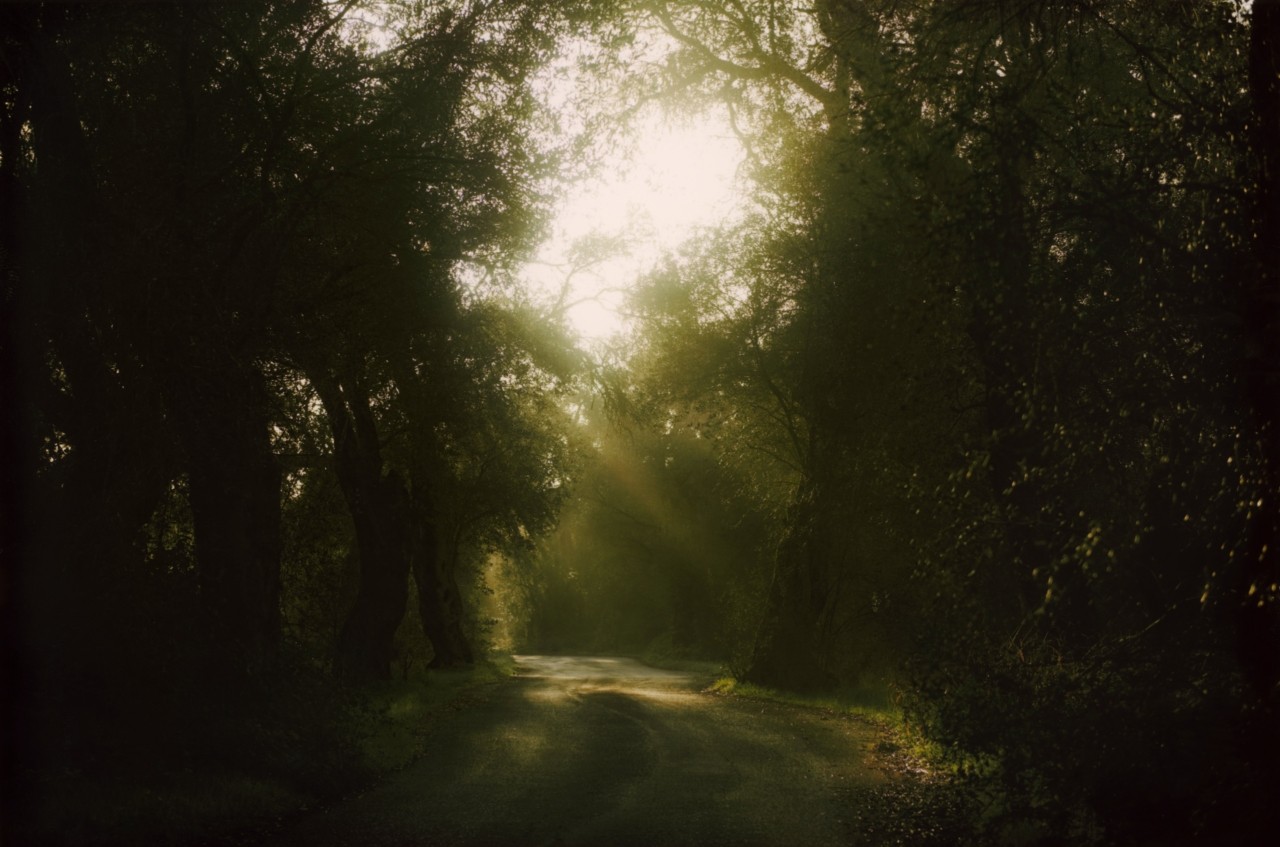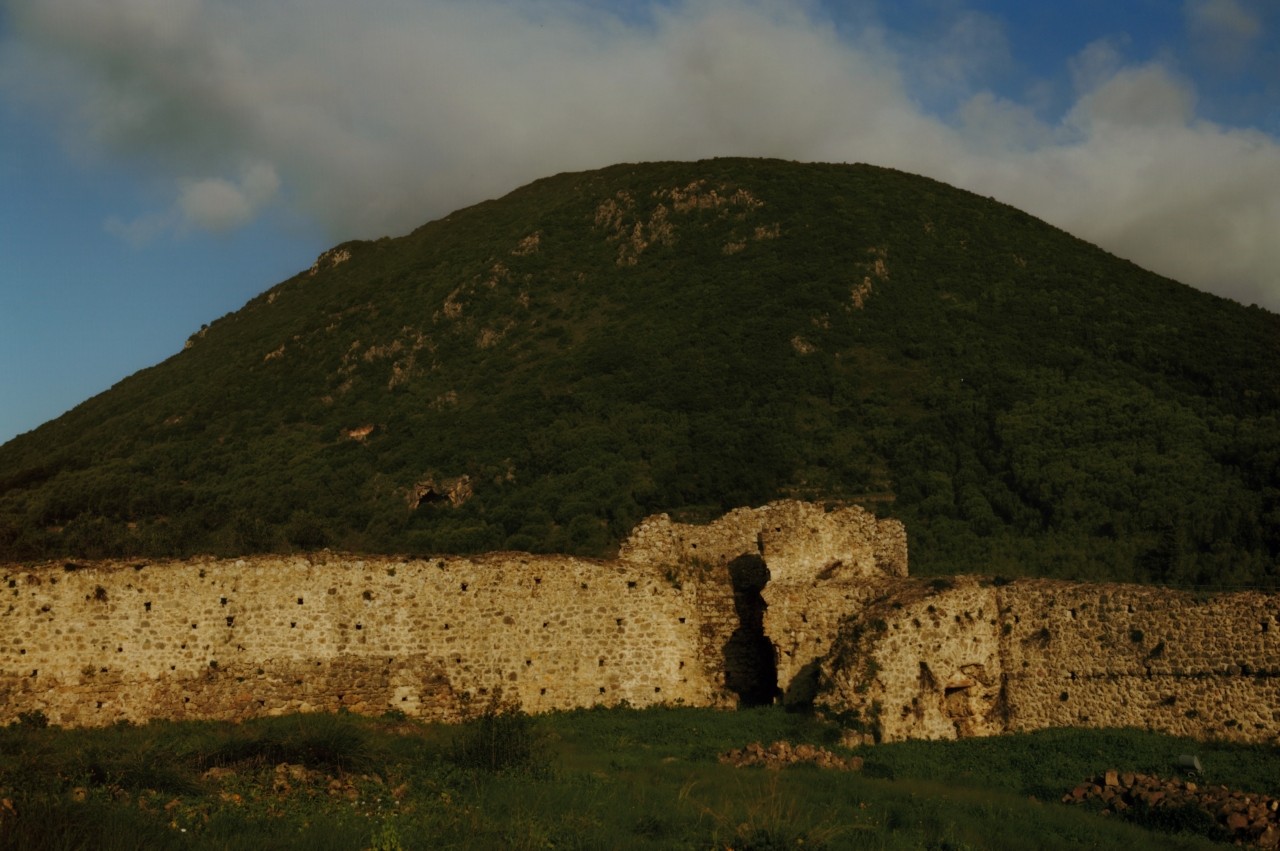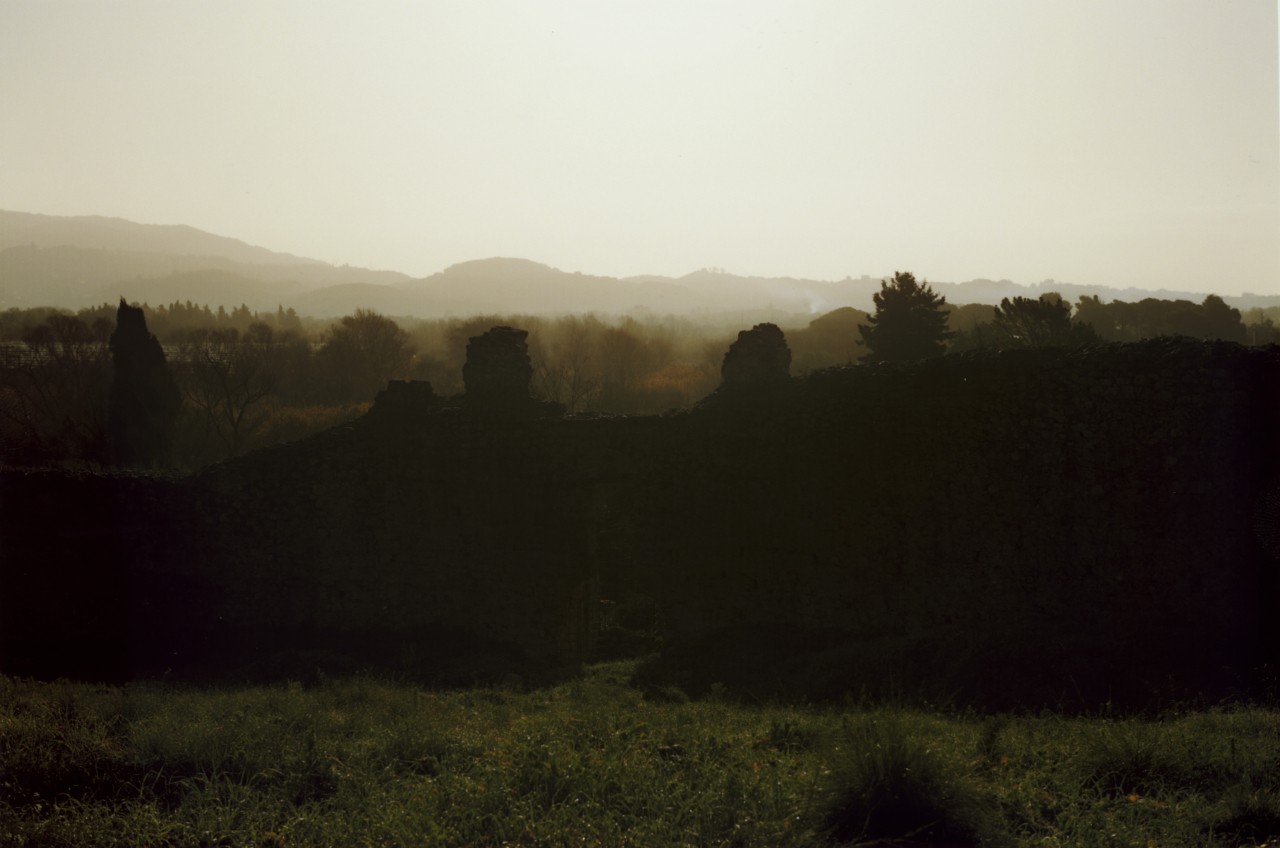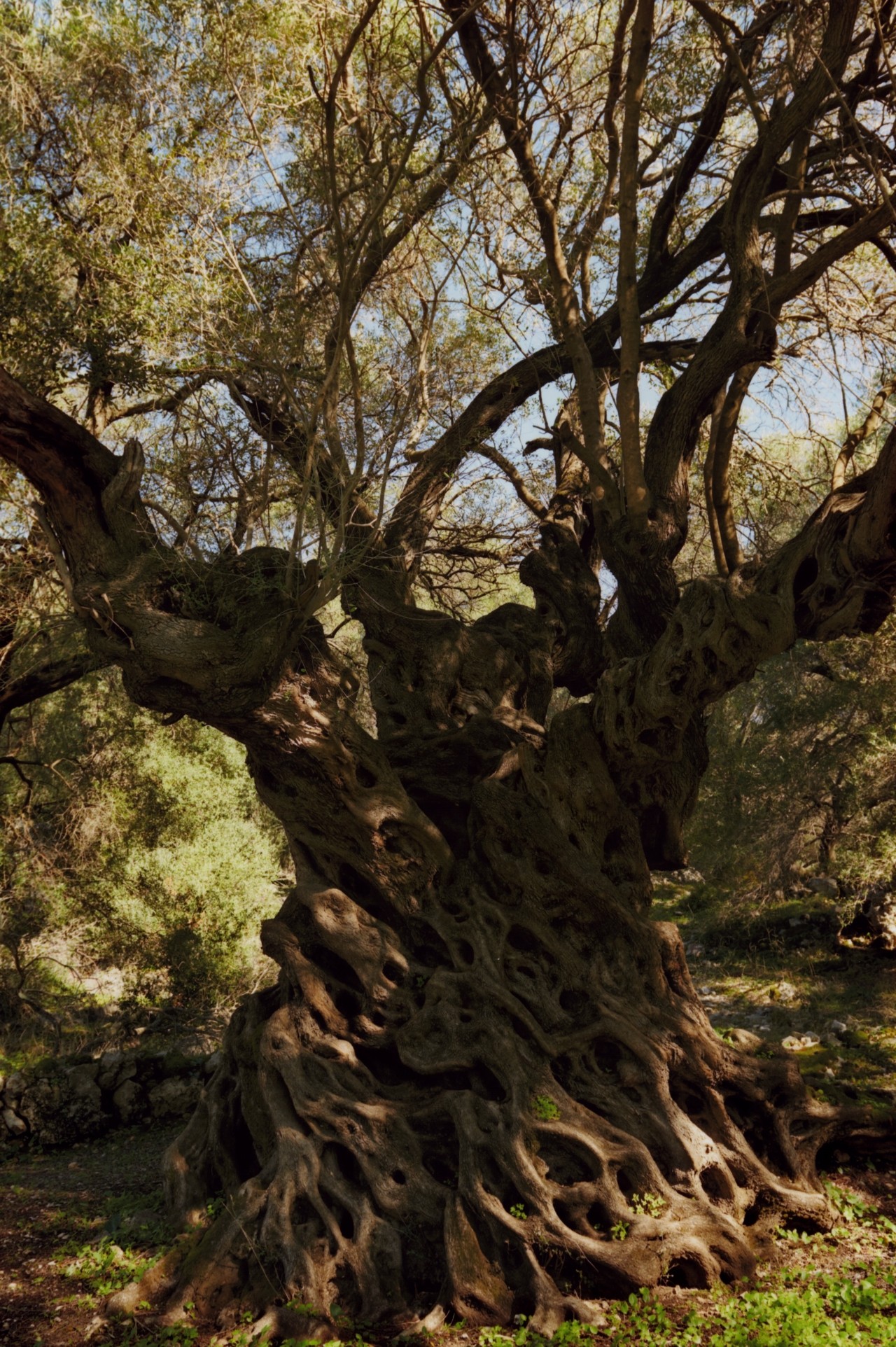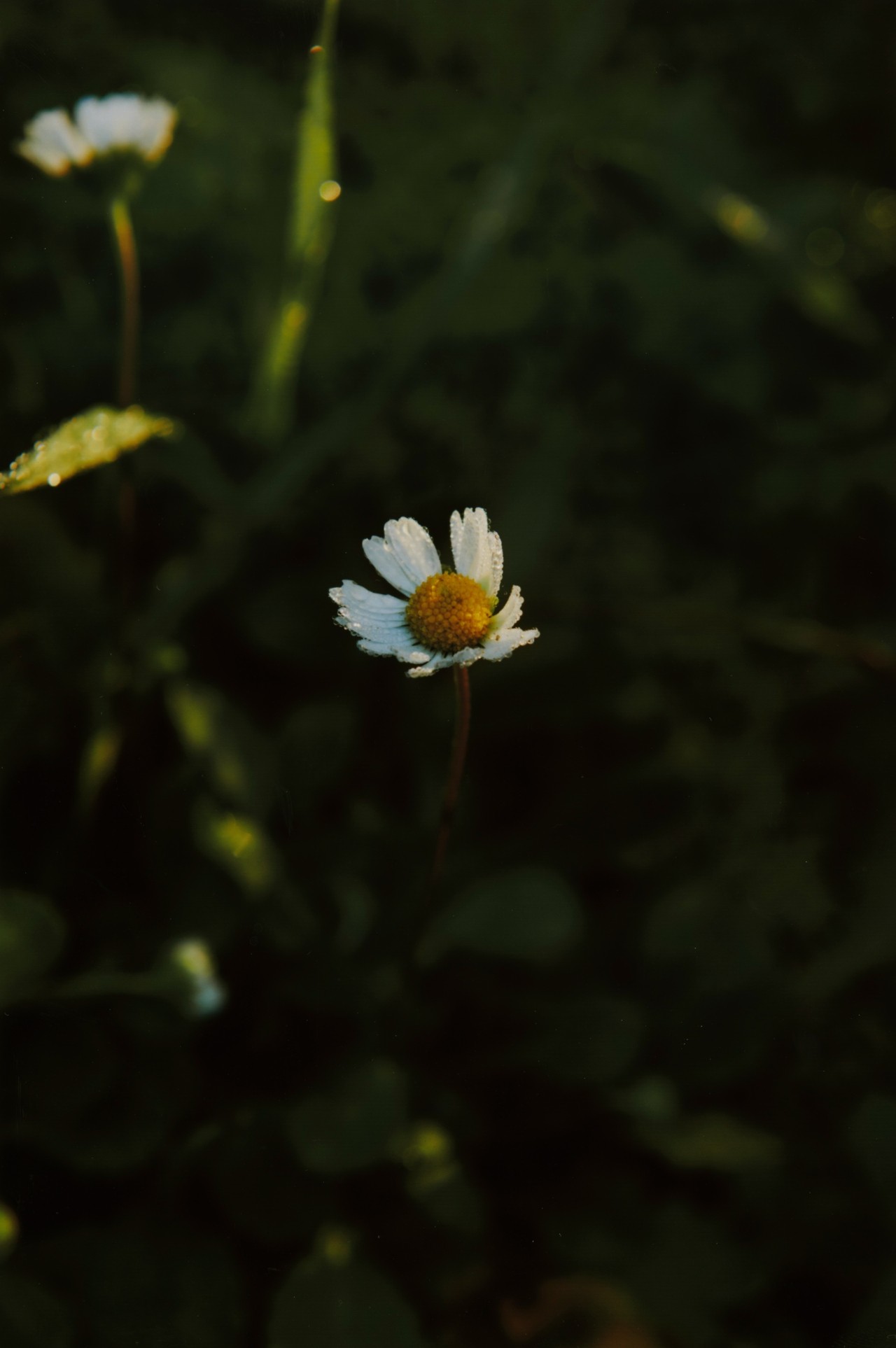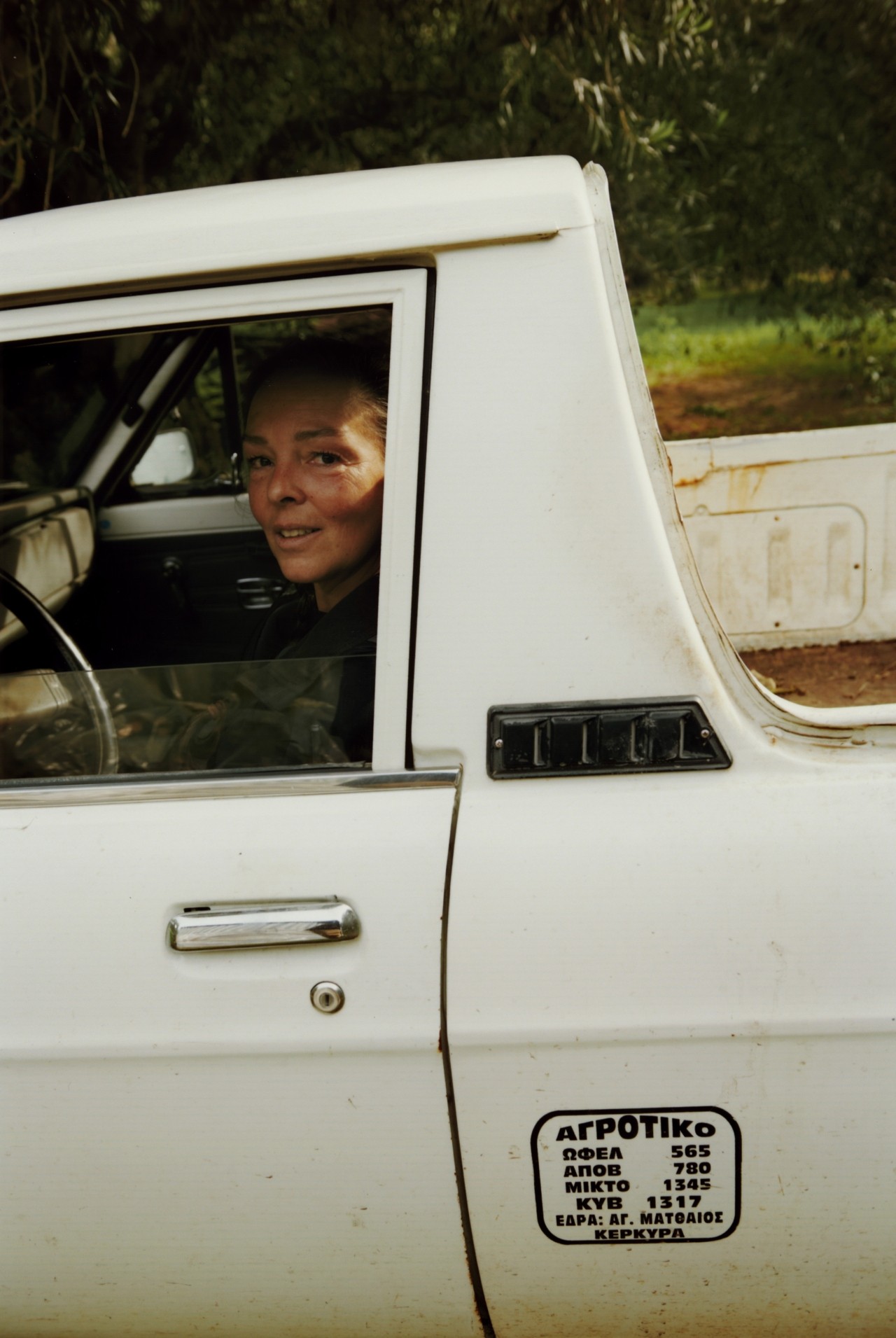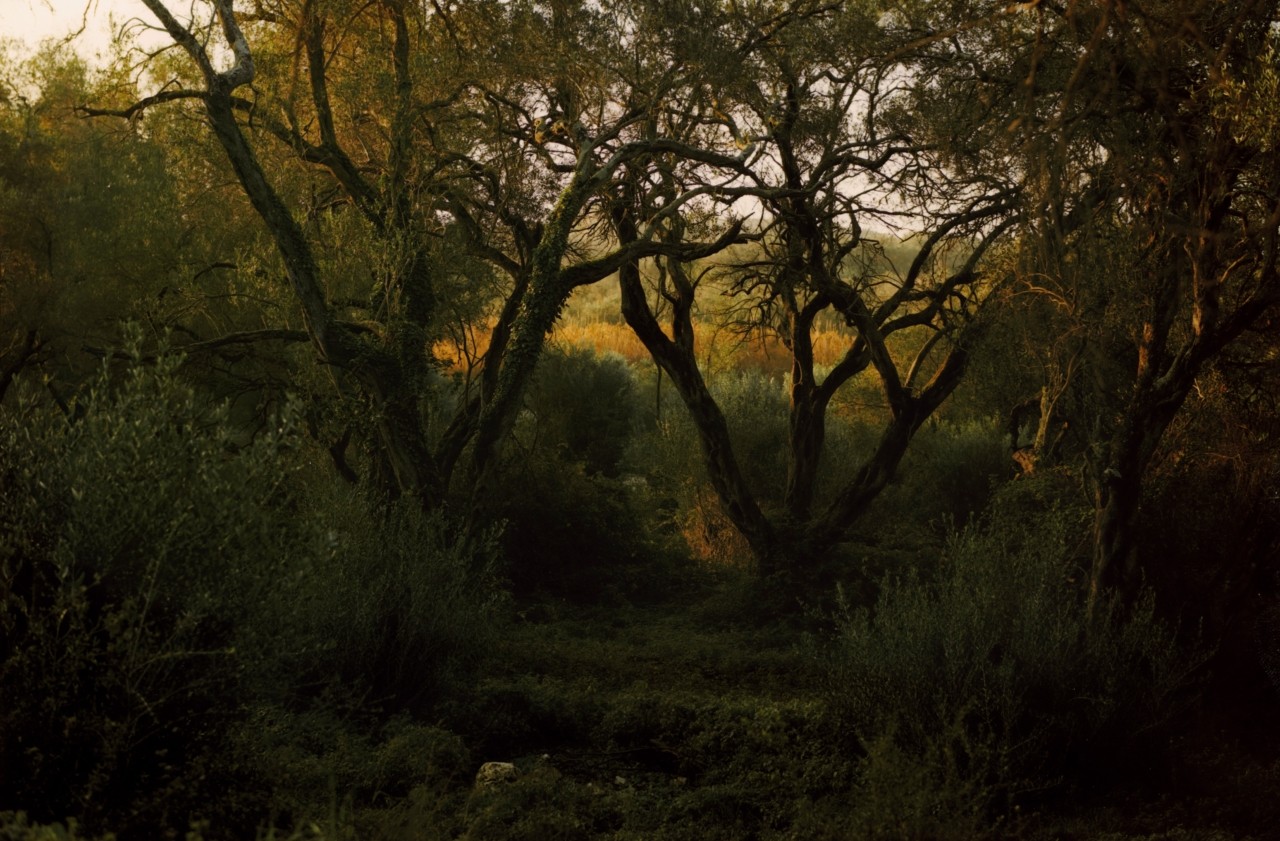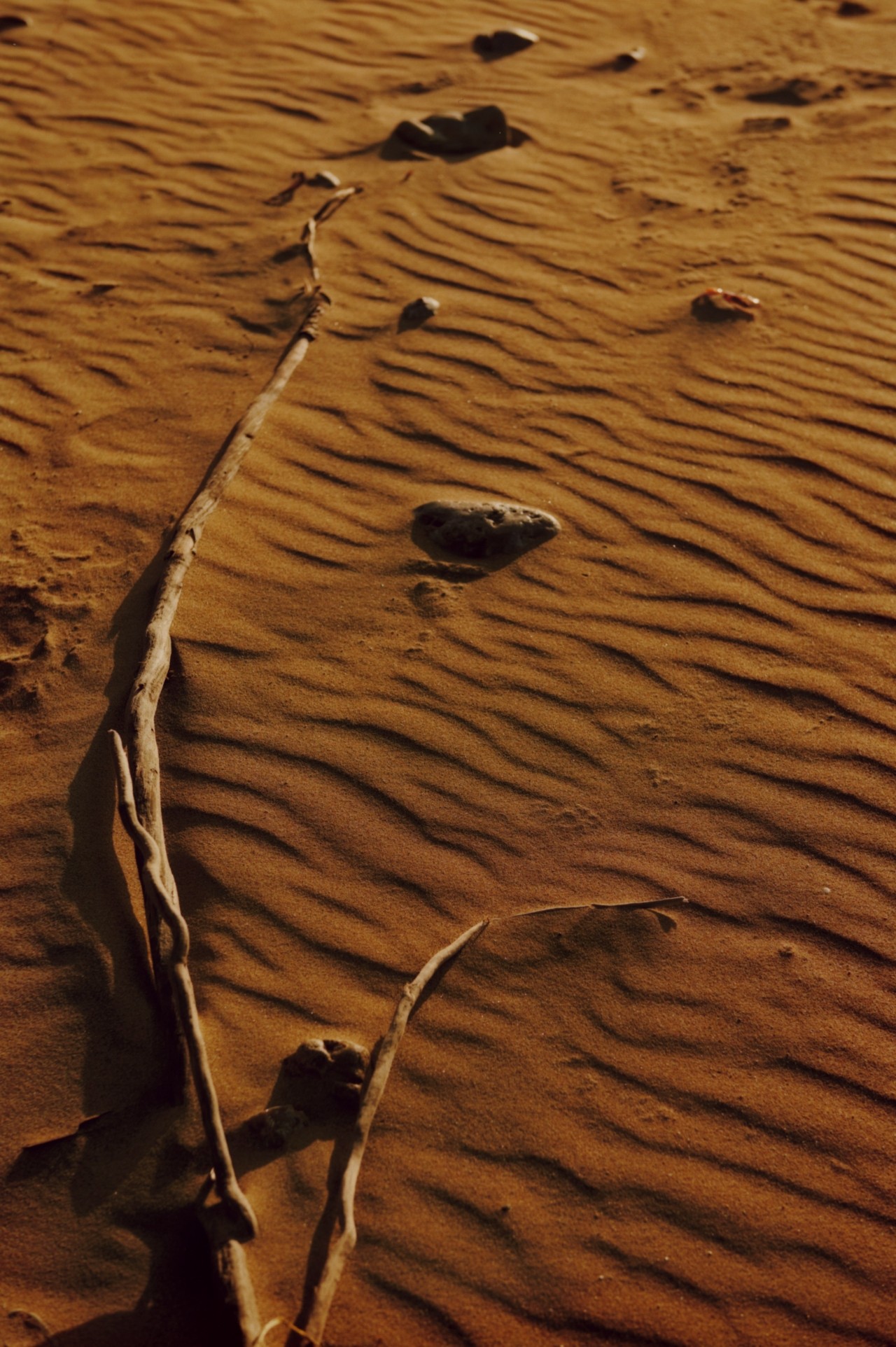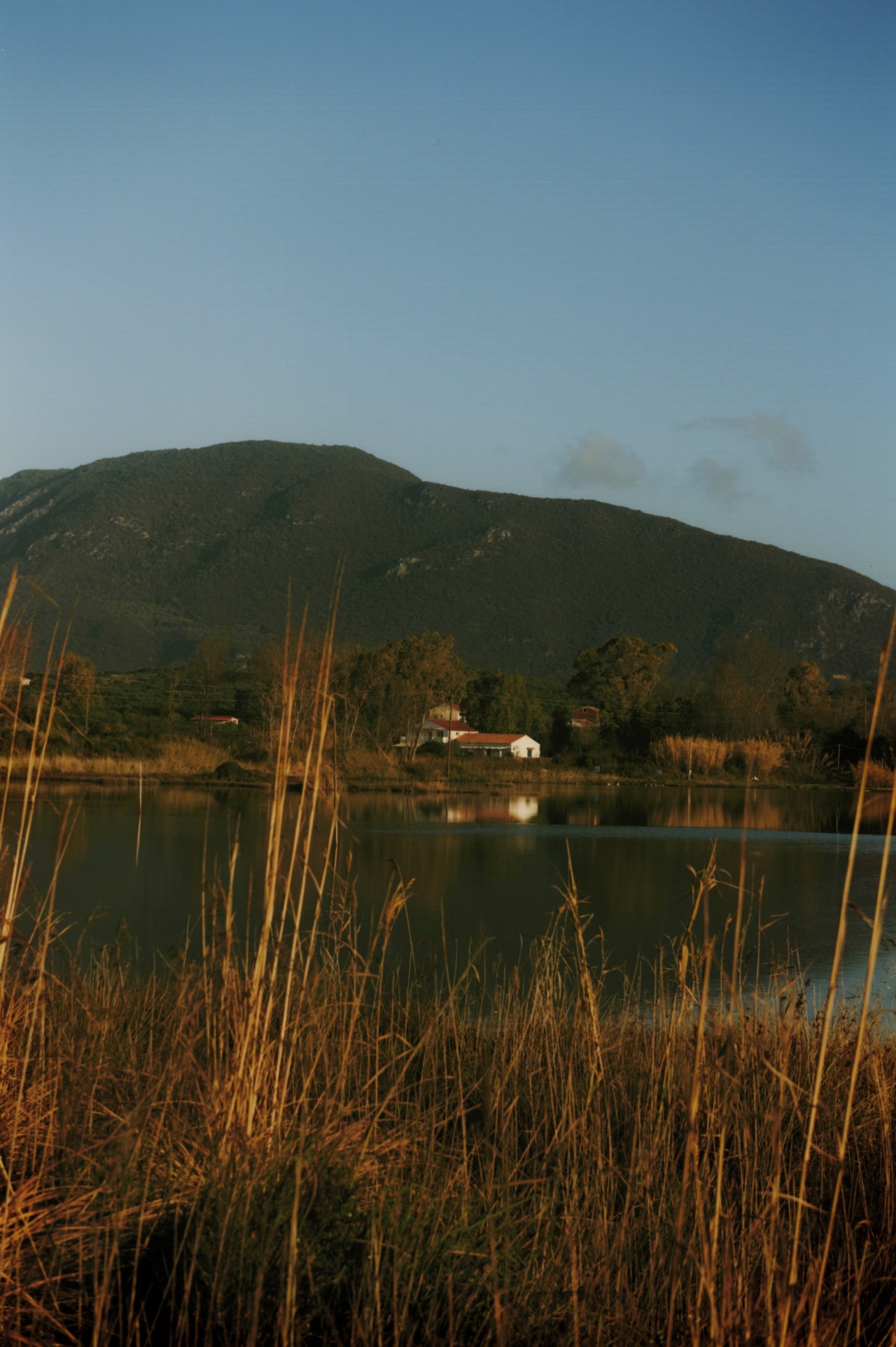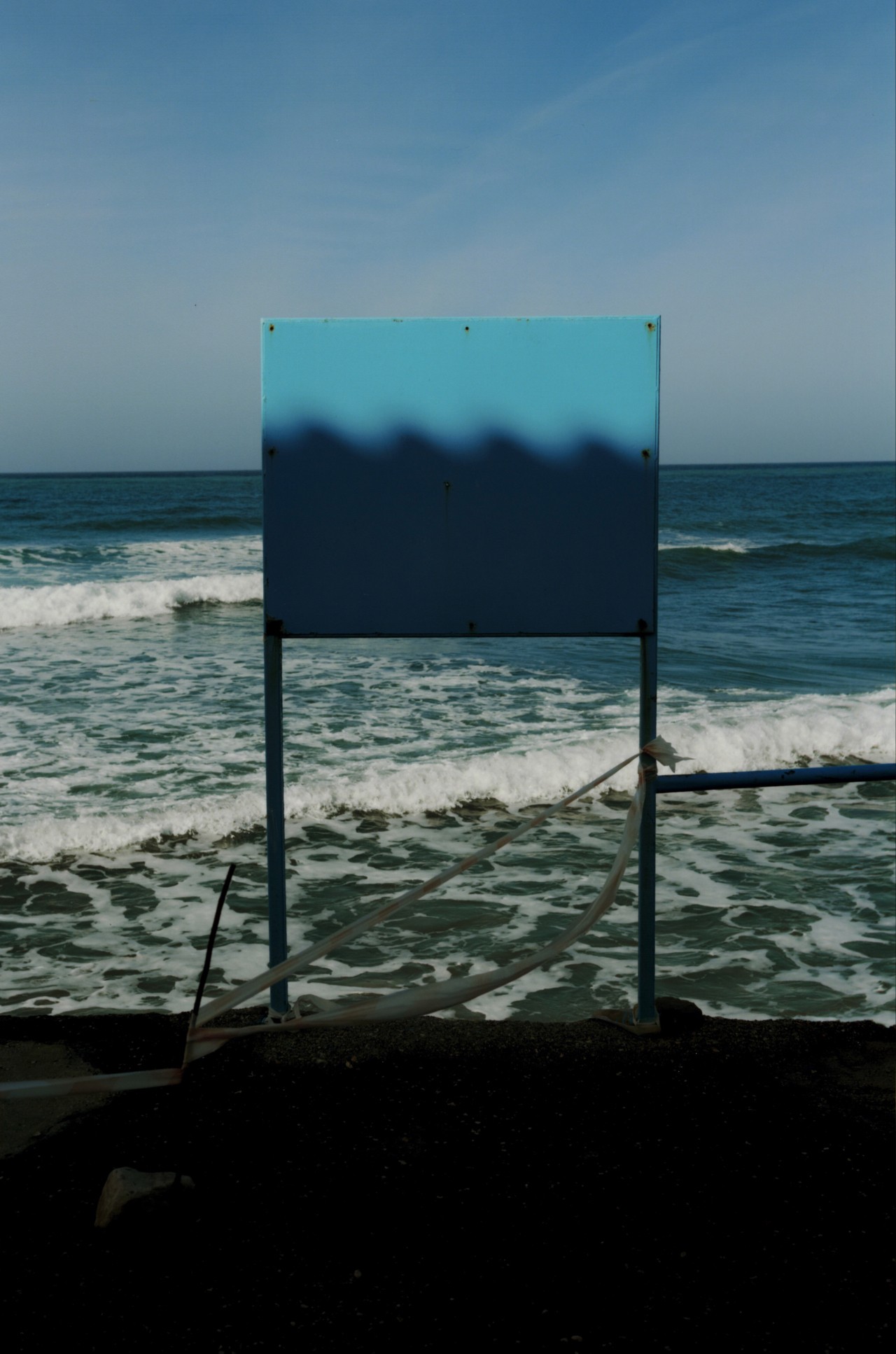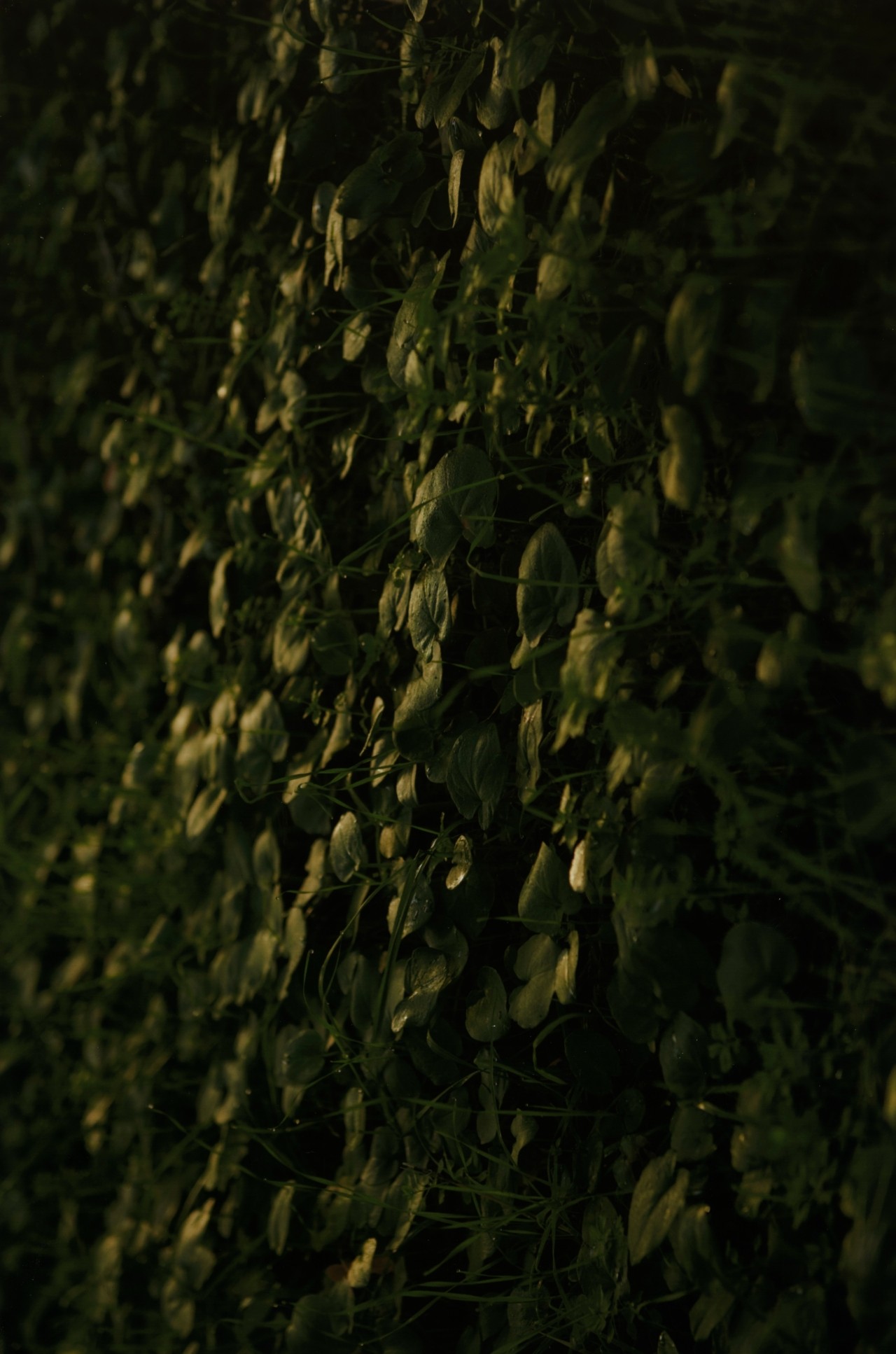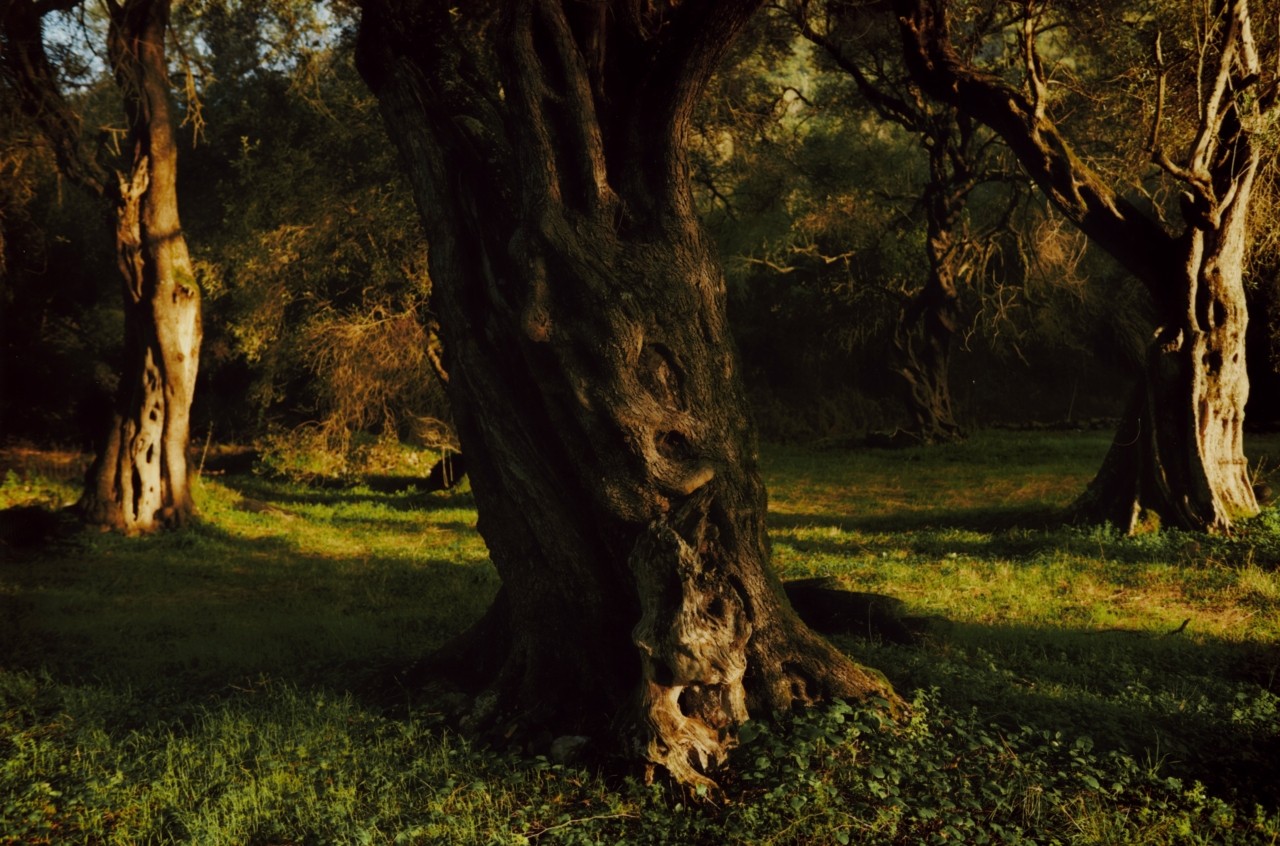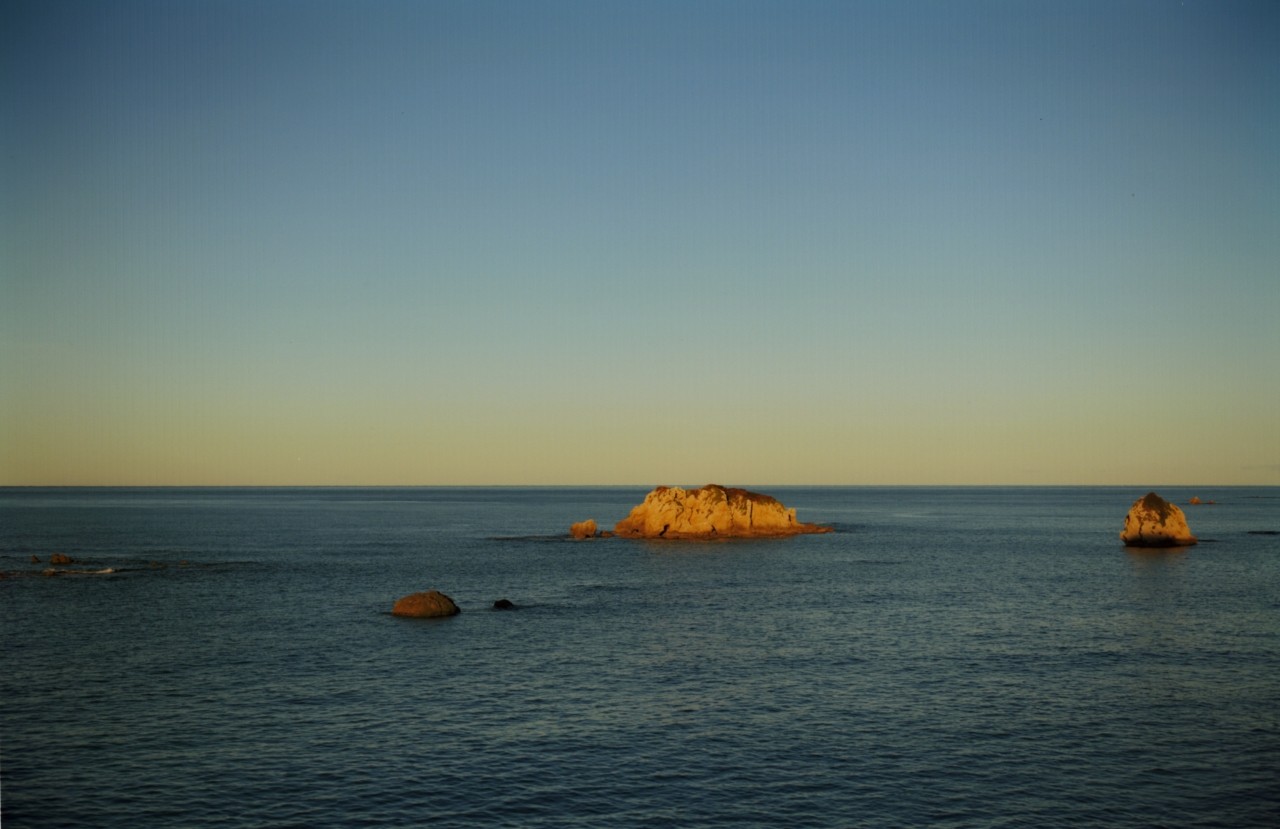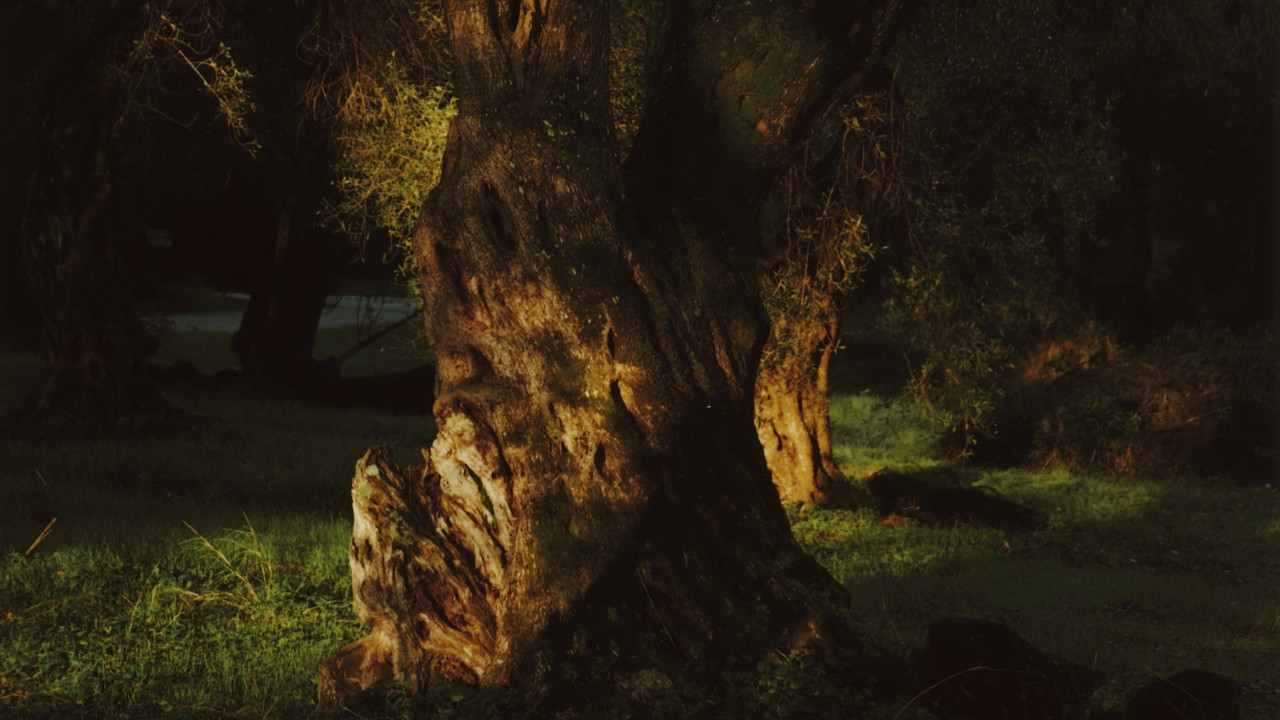
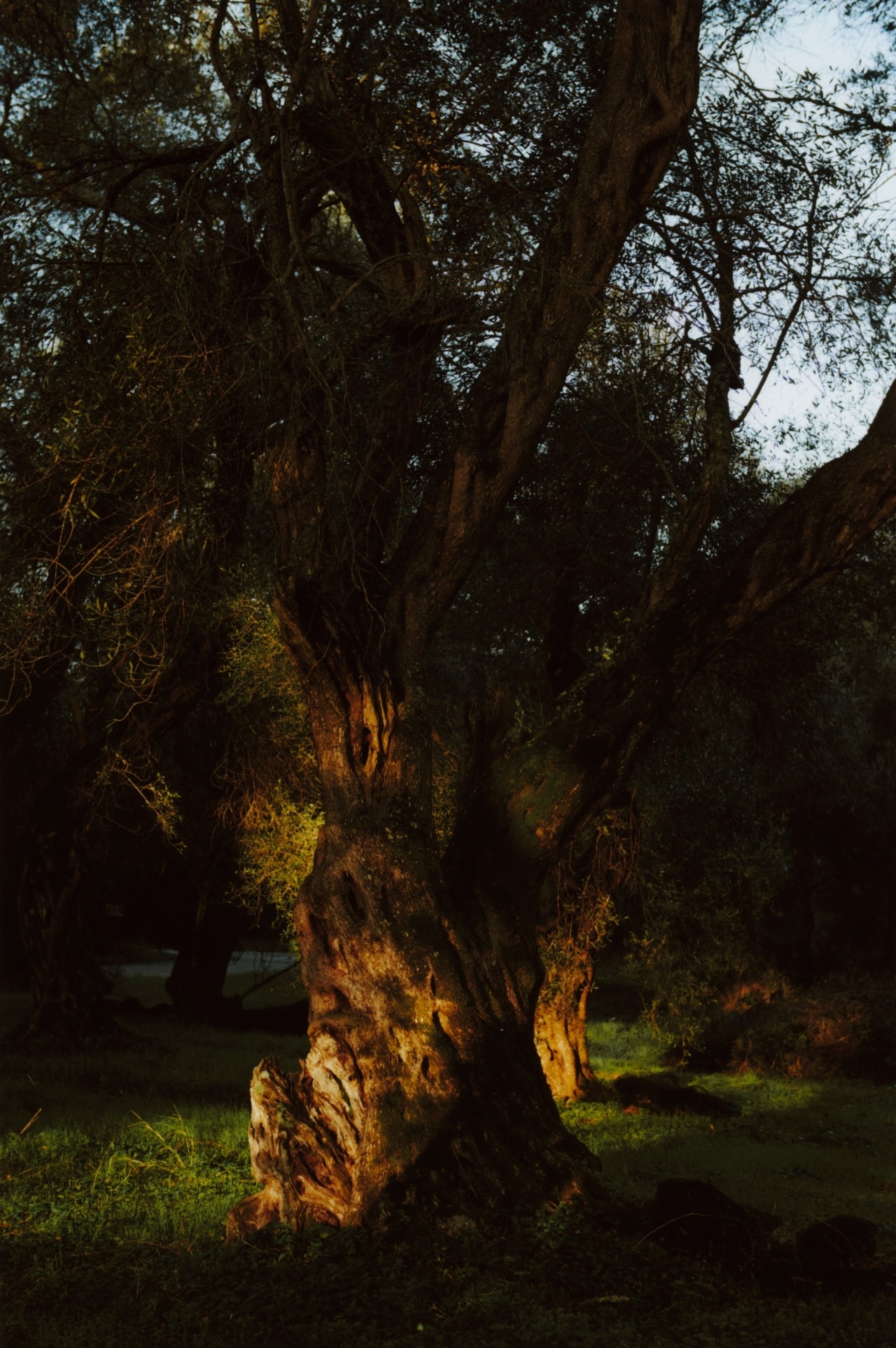
Words by Daphne Chouliaraki Milner
Photographs by Hans Neumann
It’s not hard to find olive groves in Greece. They are—quite literally—everywhere.
I’ve spent hundreds of hours in the car traveling through the country: from Athens in the south to my grandma’s native Thrace, a region that sits on the border with Turkey. Long before the smartphone and with little else to do, I would look out the window, observing the rows of silver-green olive groves sprawled across the brown Mediterranean landscapes we drove past. I would watch as the gray leaves turned green with the first light of dawn and later, a lustrous khaki under the setting sun. I’d look on as farmers moved patiently between the rows, extending their arms like clockwork to collect the fruit from the long, twisting branches they’d been nurturing all year long.
Today, the warmth of those memories is also clouded with the knowledge that climate extremes caused by human activity are pushing these olive groves to the brink—groves that, in some instances, can be traced back to antiquity.
Take Corfu as an example. The first references to olive trees on the island are found in The Odyssey. Written approximately 2,800 years ago and traditionally attributed to the Greek poet Homer, the text refers to the island of the Phaeacians—modern-day Corfu—where Odysseus, stumbling upon Nausicaa and her friends after he is shipwrecked, covers his naked body with olive branches. The mythical tale demonstrates the age-old history and longstanding cultural significance of the olive tree in Greece.

Today, there are over 4 million olive trees across Corfu, with olive groves making up 60% of the island’s natural landscapes. Most trees are around 500 years old and date back to Venetian rule, which saw the widespread replanting of olives after the island’s vineyards were uprooted during a siege carried out by Ottoman Turks. But as in many other parts of Greece, some olive trees are thought to be well over 1,000 years old.
Angelos Andriotis grew up among them. Born and raised in Corfu, he spent much of his childhood playing in the groves his ancestors stewarded for decades. When he wasn’t playing between the trees, he was helping his grandparents care for the crops and watching how they pruned the trees, picked the olives, and crushed them into oil.
“These are traditional olive groves that our family left in our care,” Andriotis told me. “My family would sell fresh oil to merchants for just a few drachmas. It’s the same oil we are making today.”
The significance of the olive tree to Greeks extends far beyond Corfu. “A very big percentage of people in Greece are linked to the olive tree, because everybody knows someone who has even a few trees in a small plot in a small olive grove,” said journalist and agricultural expert Sofia Spirou, who is based in Greece. “In our culture, gifting olive oil is a gift of care, of love. It’s so common for people to be tied to the land in that way.”
For many Greek families, the olive tree is considered kin—and cultivating oil is a way of reinforcing bonds between people. I know this to be true from my own family, who have long tended the land in the foothills of Thrace. Recently, my uncle Akis took over my great-grandfather’s plot. “I’ve made a new water-supply network to make sure my [olive trees] are fed,” he told me over the phone. “We need to care for them, and they will care for us in return.”


For Greek families who live outside Greece, the olive oil our relatives produce ties us back to the land of our ancestors; to the foods and cultural rituals they’ve practiced for generations that can so easily be lost with time and distance. Olive oil reminds me of my grandma’s dolma, her keftedes and spanakopita, and even of her xematiasma, the spiritual process of ridding someone of the evil eye with a prayer, some water, and a drop of oil. “Last year, I gave [you and your cousins] many containers of olive oil to take home,” Uncle Akis said. “It’s life-giving; so fresh you can drink it.”
Even as a small-scale olive producer, Uncle Akis could easily produce 250 liters of oil after a good harvest in past years. But today, with climate change fueling extreme weather and intensifying droughts, he’s lucky if his trees yield 100 liters.
It’s not unusual for olive harvests to fluctuate from one year to the next, but extreme weather has made the quantity of fruit even more unpredictable. “Normally when we have a good olive crop one year, the next year it’s 30% [smaller]. But this year, the trees should have been full,” said Andreas Staikos, who runs his family’s olive grove in Ermioni on the eastern coast of the Peloponnese. “We had no fruit because it was too hot and too dry. This year we had 20% [of average] production when it should have been [at least] 80%. There is so much difference.”


Greece is no anomaly. Communities across the Mediterranean that have been shaped culturally, economically, and ecologically by olive cultivation for millennia are now struggling to mitigate the effects of climate change and other environmental justice crises.
Spain, the leading global producer of olive oil, saw one of its worst harvests in 2022, which improved last year, while some producers in Italy estimate a reduction of 80% in this year’s yield. Farmers in Turkey also say they are concerned about the impact of extreme weather on their trees, and Syria has restricted olive oil exports as production is expected to decline by 50% with this coming harvest. Other threats besides climate change can play a role too: in Palestine, relentless bombardment and violence by Israel has put Gaza and the West Bank’s 10 million olive trees at risk. Israeli settlers have also been documented setting fire to Palestinian olive groves.
In these countries, where olive cultivation can be traced back thousands of years, the loss of olive groves is akin to losing a culture as well as vital income. After all, the olive tree’s ability to survive for thousands of years is testament to how resilient a crop it is. (One tree in Palestine’s Bethlehem, known as “Al-Badawi,” is believed to be 5,000 years old and remains fruitful to this day; another in Crete, Greece, is still producing olives 4,000 years on.)
“Our olive trees, most of which are 500 years old, have an extensive root system and, despite the dry, hot climate in Greece, have never had a drought problem,” Andriotis said. “But the prolonged period of unnaturally high temperatures has put the trees under enormous pressure.” Last year, olive oil production across the Mediterranean was reported to have fallen by 41% as a result of catastrophic heat waves.

“In our culture, gifting olive oil is a gift of care, of love. It’s so common for people to be tied to the land in that way.”
“It’s normal for trees to flower one year with many olives and produce less the next,” said Spyros Dafnis, who leads a family-owned grove called Governor in Corfu. “We cannot expect trees to produce fruit with the same intensity each year. But this year, we saw nothing—it is unprecedented.” Some of the trees on Dafnis’ plot are between 1,000 and 1,500 years old. One of them has been adopted by the World Olive Center for Health. Dafnis has named another “Mother” in honor of the Earth and “the respect we must show her.”
Unlike in Italy and Spain, the world’s primary producers of olive oil where large agribusinesses dominate, it is small-scale producers who make up the backbone of the olive sector in Greece. The vast majority of these are family-run businesses, so when harvests fail, the consequences are felt across the country immediately and on a local scale. Olive oil theft is on the rise in Greece as the cost of oil soared by 200% over the last 12 months. But the price hikes don’t translate to comparable profit increases for farmers who have less to sell, and are putting more resources toward measures to protect their olive mills from both intruders and climate change.
The most immediate threat to olive groves across the country is water scarcity. Droughts have been recorded in almost 40% of Greece’s territory—and some producers are trying to take steps to mitigate the subsequent risks facing trees.
“We need to secure water,” said Stavros Galalas, who chairs a cooperative for olive oil producers in Crete. “That is our priority. It’s the only way to deal, to some extent, with climate change and its effects on the island, and it’s also the only way to keep the island’s vast olive groves thriving.” This could mean using more surface water, investing in water-saving distribution systems and irrigation plans, reusing rainwater when possible, and relying more frequently on reclaimed water and saltwater.



In Ermioni, Andreas Staikos’s family have long relied on a nearby river to water their olive groves. “But we haven’t seen water from that river in five or six years—nothing,” Staikos said. “I am 73 years old, and when I was a kid, we could anticipate roughly what the weather would be like.” That’s no longer possible, and there is no obvious solution, he added.
Weather patterns are becoming increasingly unpredictable. Following one of the country’s worst heat waves last summer that saw temperatures reach 45°C (113°F), the country experienced devastating floods that swept away large swathes of agricultural land. “That’s not good for the olives either,” said Staikos. “Too much water means the ground isn’t able to take it in. We’re dealing with extremes.”
While some are worried about the effects of high temperatures and heavy rainfall, others are concerned about the growing risk of wildfires. Valia Kelidou, who runs a family-owned oil mill called Kyklopas in Alexandroupoli, is one of few olive producers who didn’t lose trees in a wildfire that devastated the area last summer and destroyed over 370,600 acres of land. “We watched as thousands of trees were burned,” she said. “There was nothing we could do—no help. It affected half the trees in the area.”
Migrant workers often shoulder the burden in the fight against climate change on olive groves across the Mediterranean. The wildfires near the border with Turkey that Kelidou referred to killed 18 people, all of whom were believed to be migrants.


And while the majority of oil producers in Greece remain small and family-run, in response to labor shortages, the government has recently legalized the papers of thousands of unregistered migrant workers in the country, giving them permission to work across sectors, including on olive groves. As such legislation comes into effect, corresponding rules must also be implemented to ensure the protection of workers if Greece is to avoid the problems of some of its peer countries. In Italy and Spain, migrant workers are made to work long hours picking olives despite the effects on their health and safety, especially during heatwaves and wildfires.
Efforts by local communities to mitigate climate change’s impacts—and protect both the land and the people who tend to it—will become all the more urgent as extreme weather intensifies.
One way to be better prepared for increasingly unpredictable weather patterns is to have better data. In Corfu, Spyros Dafnis is building the necessary infrastructure to ensure he can accurately record the changes in the local climate in the hope that this can inform how he cares for the olives on his grove—and for his own family who spend so much time there.
“We’ve started more intensively recording the microclimate of our region, and we will continue to do this by installing, for the first time, a small weather station in the new mill unit we are building,” he told me. “It’s something I never could have predicted, but it’s become very serious.”



For people like Dafnis, whose ancestors have nurtured olive groves for generations, the stakes couldn’t be higher. “These trees are living monuments of nature and they are living symbols of us—our histories, our families,” he said.
The resilience of olive trees has historically offered security to families across Greece, a country at the intersection of both climate and economic crises. It’s why the collective mindset is one of “if everything else fails, the olive tree still stands,” said agricultural expert Spirou. “Especially in rural areas where incomes are more humble. The olive tree is there in times of need.” It’s fitting, then, that the olive tree has long been considered a symbol of strength and determination.
It is also an emblem of friendship, compassion, and harmony. Throughout the year, families get together to help prune and care for the trees, and every October, they gather to help harvest. Meals are prepared and shared throughout the day before the olives are meticulously pressed to yield olive oil. It’s a tradition that has been around for as long as the communities have tended to the trees; one that ties individuals to the land and its cycles as the customs are passed down from one generation to the next.
As my conversation with Uncle Akis drew to a close, he reminded me to come back home in time for the next harvest. “Don’t forget—we need to organize for you to come in October when we pick the olives,” he said to me, promising to save me a bottle of his latest yield. “We will go to the mill together and make the oil.” There may have been times in my life where spending days in the heat picking olives could have seemed like a chore. But today, the invitation feels like a privilege; an act of continuity with a past I’m eager to hold onto.
“The olive tree is in so many ways at the heart of the family—it reinforces our relationships with one another,” Spyrou told me over the phone.
In my experience, she’s right. The trees teach us to be in relationship with the soil and with those who have cultivated and cared for it, so that we can share in its abundance today. What so many of the olive growers share is a collective sense of duty to pass on the trees they nurture to the next generation, so that they too can enjoy the fruits—and the stories and the wisdom—they carry.

translation Antonis Andriotis
Trees for the Ages: The Wisdom of Greece’s Olive Growers
